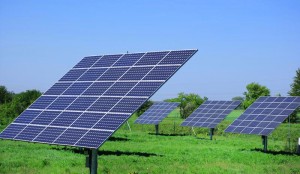 More than 110,000 North Carolinians now work in clean energy after 3,700 jobs were created in the state in 2018, according to a new analysis of energy jobs data by the national nonpartisan business group E2 (Environmental Entrepreneurs).
More than 110,000 North Carolinians now work in clean energy after 3,700 jobs were created in the state in 2018, according to a new analysis of energy jobs data by the national nonpartisan business group E2 (Environmental Entrepreneurs).
According to Clean Jobs North Carolina 2019, the state’s clean energy jobs grew 3.5 percent last year – nearly double statewide employment growth (1.9%) —and now account for more than half of North Carolina’s entire energy sector workforce (212,172). Clean energy jobs also now employ more than ten times more workers than the state’s entire fossil fuel industry (10,022).
“Just like agriculture, biotech and banking before, clean energy is helping reshape North Carolina’s economy once again – and creating thousands of good-paying jobs along the way,”said Bob Keefe, Executive Director of E2. “Lawmakers now have the opportunity to keep those jobs growing by implementing the right suite of policies that are already in the works.”
Energy efficiency remains the largest clean energy sector in North Carolina with more than 86,500 workers – up from 84,000 in 2017. Renewable energy, led by solar (9,000 jobs), accounted for the second-most clean energy jobs (12,000) while the clean vehicles sector added more than 1,000 jobs (7,200 jobs) for a 19.5% growth rate from 2017.
“These jobs numbers are proof clean energy solutions will continue to be a worthwhile investment in North Carolina’s economic future,” said Veronica Butcher, E2’s North Carolina Representative. “The advancements highlighted in the report show businesses are creating jobs for North Carolinians that cannot be outsourced while shifting the state to clean energy future.
Analyzing the state geographically, Clean Jobs North Carolina 2019 found that while Charlotte and Raleigh accounted for about one out of every three clean jobs in the state, about 25 percent (29,000) are in rural areas. Additionally, all 100 North Carolina counties are home to some clean energy workers, with 26 counties supporting at least 900. Mecklenburg led all counties in North Carolina with more than 20,142 jobs, followed by Wake (17,491) and Guilford (6,318) counties. By density, Mecklenburg, Wake, and Iredell counties led the state, all support5ing over 20 clean jobs per 1,000 employable residents.
Additionally, Clean Jobs North Carolina 2019 shows that clean energy employment knows no political boundaries. Some of the biggest concentrations of clean energy jobs are in longtime Republican-held congressional districts, but districts held by Democrats also have large numbers of clean energy jobs. Similarly, 40 of the state’s 50 Senate districts now have more than 1,000 clean energy jobs, as do 39 state House districts.
Looking at legislative districts, 11 of North Carolina’s 13 congressional districts supported over 5,000 clean jobs. In the state legislature, 40 of the state’s 50 senate districts along with 39 house districts had over 1,000 clean energy jobs.
Other highlights from Clean Jobs North Carolina 2019:
- 80% of clean energy employers reported it was “very difficult” or “somewhat difficult” hiring qualified workers
- More than 4 out of every 5 clean energy workers are employed by businesses with fewer than 20 employees
- Construction (44.3%) and manufacturing (16.8%) make up the majority of clean energy jobs.
- 3,468 North Carolinians now work in grid modernization (2,124) and energy storage (1,344)
- 11.4 % of North Carolinians employed in clean energy are veterans – nearly double the percentage of veterans in the overall national workplace (6%)
- 22 counties employ at least 1,000 clean energy workers
The report follows E2’s Clean Jobs America analysis which found the clean energy jobs account for nearly 3.3 million jobs across all 50 states and the District of Columbia. Both reports are based on data from the 2019 U.S. Energy and Employment Report (USEER) produced by the Energy Futures Initiative (EFI) in partnership with the National Association of State Energy Officials (NASEO).


